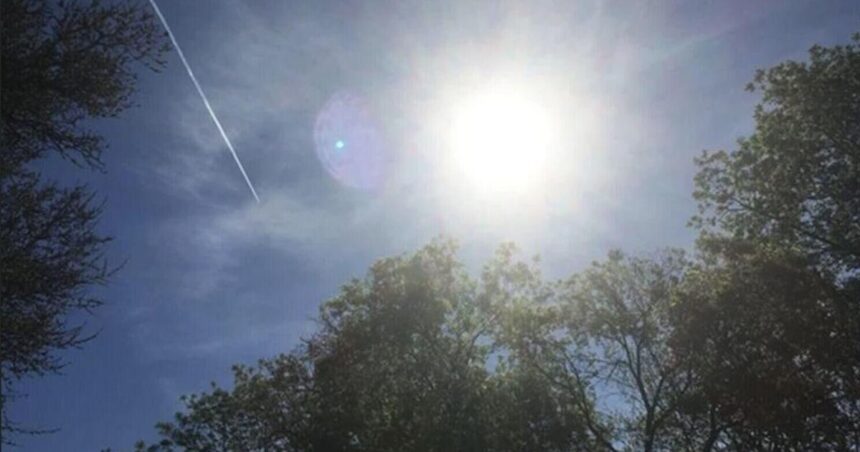The mercury is climbing again across Peel Region, and public health officials aren’t taking any chances. Environment Canada’s forecast shows temperatures hovering around 30 degrees Celsius through the weekend, but when humidity factors in, it could feel closer to 40 – triggering a formal heat warning from Peel Public Health.
“This isn’t just uncomfortable weather – these conditions can be dangerous, especially for vulnerable residents,” said Dr. Kate Wong, Associate Medical Officer at Peel Public Health, during yesterday’s briefing. “We’re particularly concerned about seniors, young children, and those with chronic health conditions.”
The warning covers Brampton, Mississauga, and Caledon, where cooling centers have already begun extending their hours. The region has activated its hot weather response plan, which includes wellness checks for registered vulnerable residents and expanded outreach to homeless populations.
For Mississauga resident Maria Gonzalez, these warnings have become a summer ritual that she takes seriously. After her elderly mother suffered heat exhaustion two summers ago, Gonzalez now helps coordinate neighborhood check-ins.
“People don’t realize how quickly the heat can affect you,” she told me while setting up a water station at her community garden. “We’ve got about seven seniors on just our street who live alone. We make sure someone stops by twice daily when these warnings are active.”
The region’s cooling centers will operate with extended hours throughout the weekend. The Brampton Emergency Management Office confirmed that eight facilities across the city will remain open until 9 p.m., including recreation centers and libraries. Mississauga has opened similar facilities, while Caledon has designated three community centers as cooling locations.
According to Peel Region’s annual weather response data, heat-related emergency room visits increased by 17 percent during similar conditions last July. Paramedic services have added two additional response units specifically to address heat-related calls.
The timing is particularly concerning as it coincides with several outdoor festivals planned across the region. Brampton’s Summer Music Series kicks off tomorrow at Garden Square, while Mississauga’s waterfront is hosting a weekend-long food festival.
“We’re not telling people to cancel their plans,” explained Dr. Wong. “But we strongly advise limiting outdoor activity to early morning or evening hours, staying hydrated, and watching for symptoms of heat illness.”
Symptoms residents should watch for include dizziness, nausea, headache, extreme thirst, and decreased urination. More severe signs like confusion, fainting, or high body temperature require immediate medical attention.
The Region’s Environmental Services department is also monitoring air quality, which often deteriorates during heat events. Current forecasts predict moderate air quality risks, particularly challenging for those with respiratory conditions.
Local businesses are feeling the impact too. Hardware stores across Peel report air conditioner units and fans selling out quickly. At Bramton’s east end Home Hardware, manager Raj Patel said they’ve sold more portable AC units in the past 48 hours than they typically sell in two weeks.
“Every time these warnings hit, we see the same pattern,” Patel said. “People wait until it’s unbearable, then everyone rushes in at once looking for relief.”
Climate researchers from the University of Toronto’s Mississauga campus note that these intense heat events are becoming more common. Dr. Amina Jackson, who studies urban heat island effects, points out that Peel Region’s extensive concrete coverage amplifies temperature extremes.
“Urban areas like Mississauga and Brampton can be 4-7 degrees warmer than surrounding rural areas,” Jackson explained. “The pavement and buildings absorb heat during the day and release it slowly overnight, preventing the cooling that naturally occurs in less developed areas.”
For Caledon residents, where green space is more abundant, temperatures may be slightly more moderate, but the health risks remain significant. Rural residents sometimes face additional challenges during extreme heat, including less access to public cooling centers and greater distances to emergency services.
Peel Region Council approved a climate adaptation strategy last year that includes measures to address increasing heat events. The plan calls for expanded tree canopy, more cooling centers, and better public education around heat risks. Critics argue implementation has been too slow, while regional officials point to budget constraints.
For now, residents are encouraged to check on vulnerable neighbors, keep pets indoors during peak heat hours, and never leave children or pets in parked vehicles even for short periods.
The heat warning is expected to remain in effect until at least Monday morning when a weather system moving in from the northwest may bring some relief. Until then, Peel Region residents should take precautions seriously and look out for one another – especially those most at risk.






